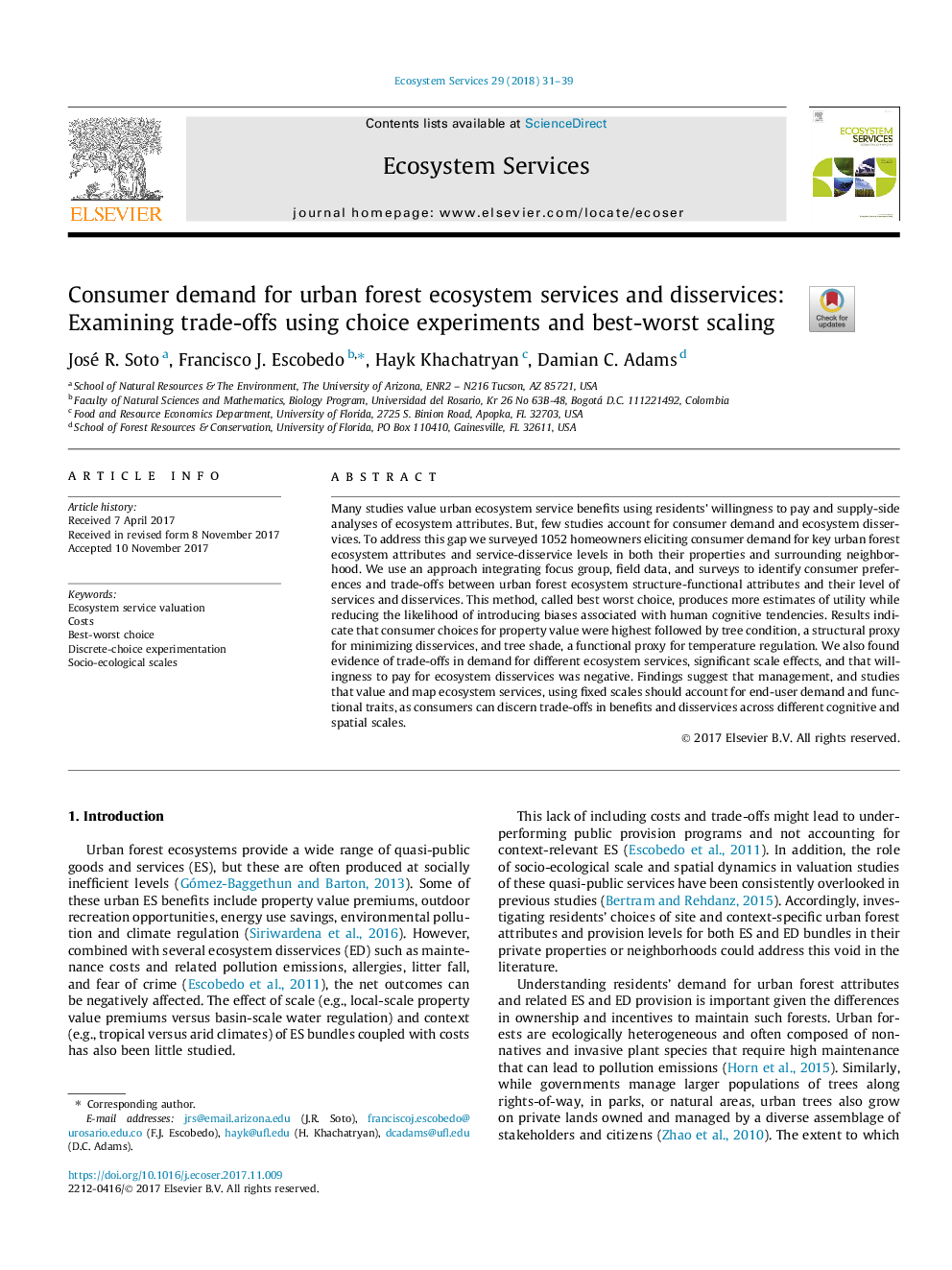ترجمه فارسی عنوان مقاله
تقاضای مصرف کننده برای خدمات اکوسیستم جنگل شهری و خسارت: بررسی ترکیب با استفاده از آزمایش های انتخابی و بهترین بدترین مقیاس
عنوان انگلیسی
Consumer demand for urban forest ecosystem services and disservices: Examining trade-offs using choice experiments and best-worst scaling
| کد مقاله | سال انتشار | تعداد صفحات مقاله انگلیسی |
|---|---|---|
| 109479 | 2018 | 9 صفحه PDF |
منبع

Publisher : Elsevier - Science Direct (الزویر - ساینس دایرکت)
Journal : Ecosystem Services, Volume 29, Part A, February 2018, Pages 31-39
ترجمه کلمات کلیدی
ارزیابی خدمات اکوسیستم، هزینه ها، بدترین انتخاب، آزمایش گزینشی گسسته، مقیاسهای اجتماعی و اکولوژیکی،
کلمات کلیدی انگلیسی
Ecosystem service valuation; Costs; Best-worst choice; Discrete-choice experimentation; Socio-ecological scales;

